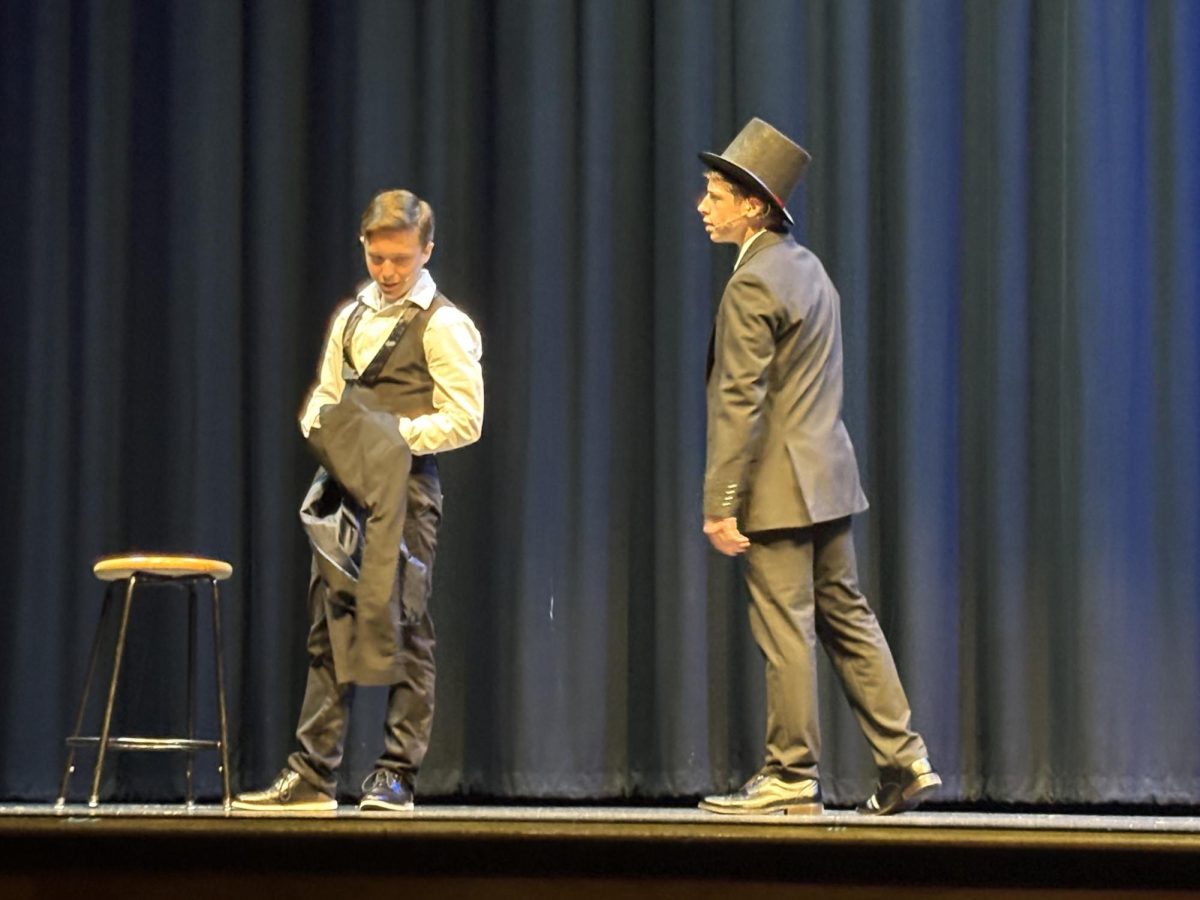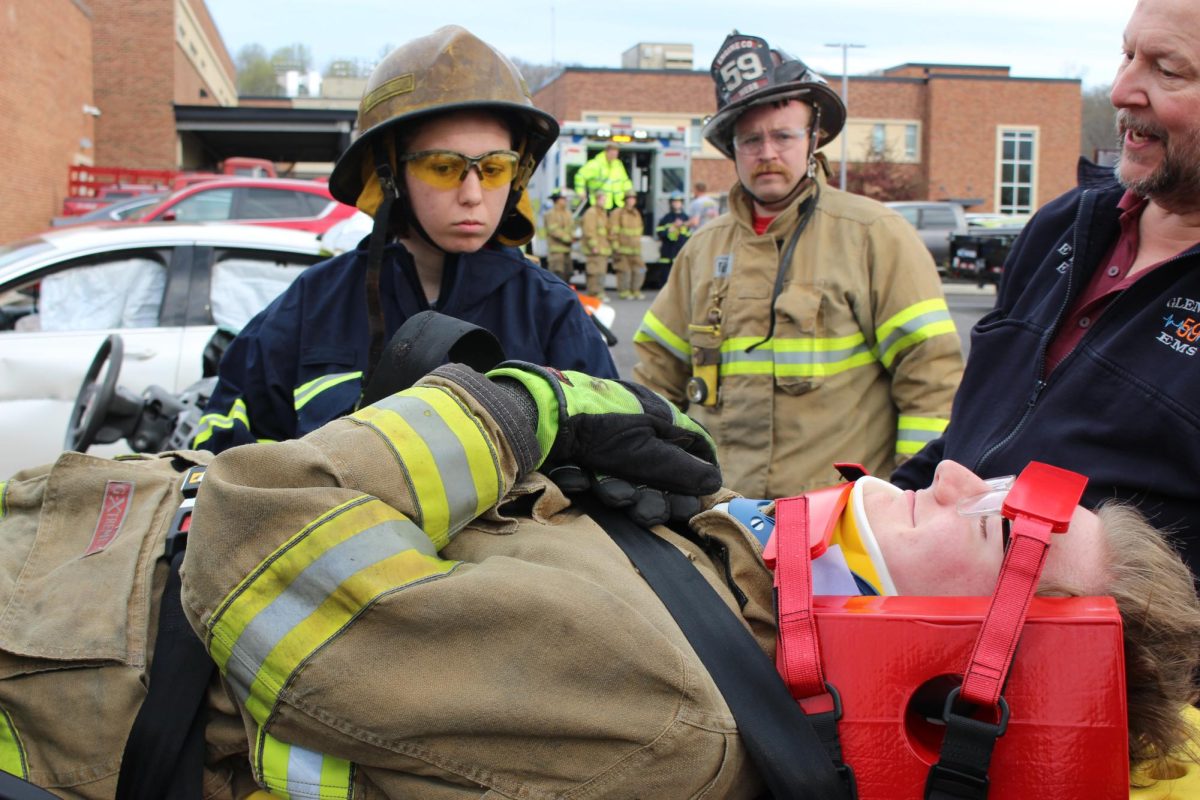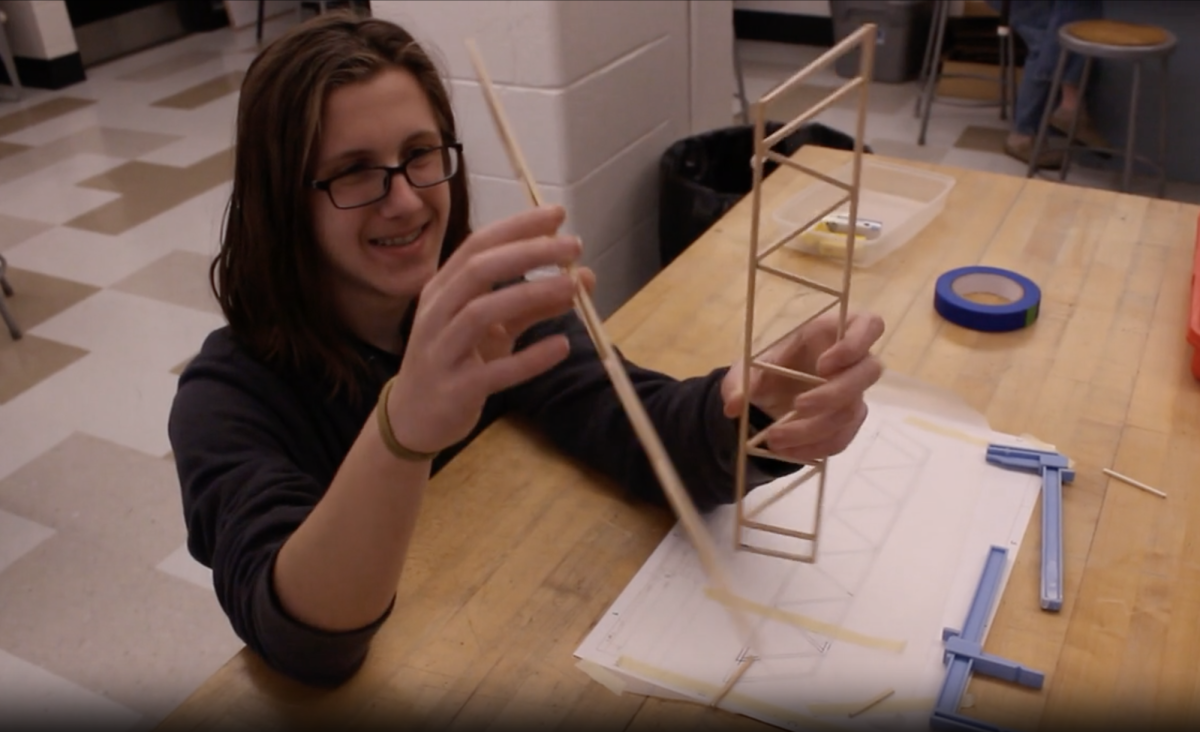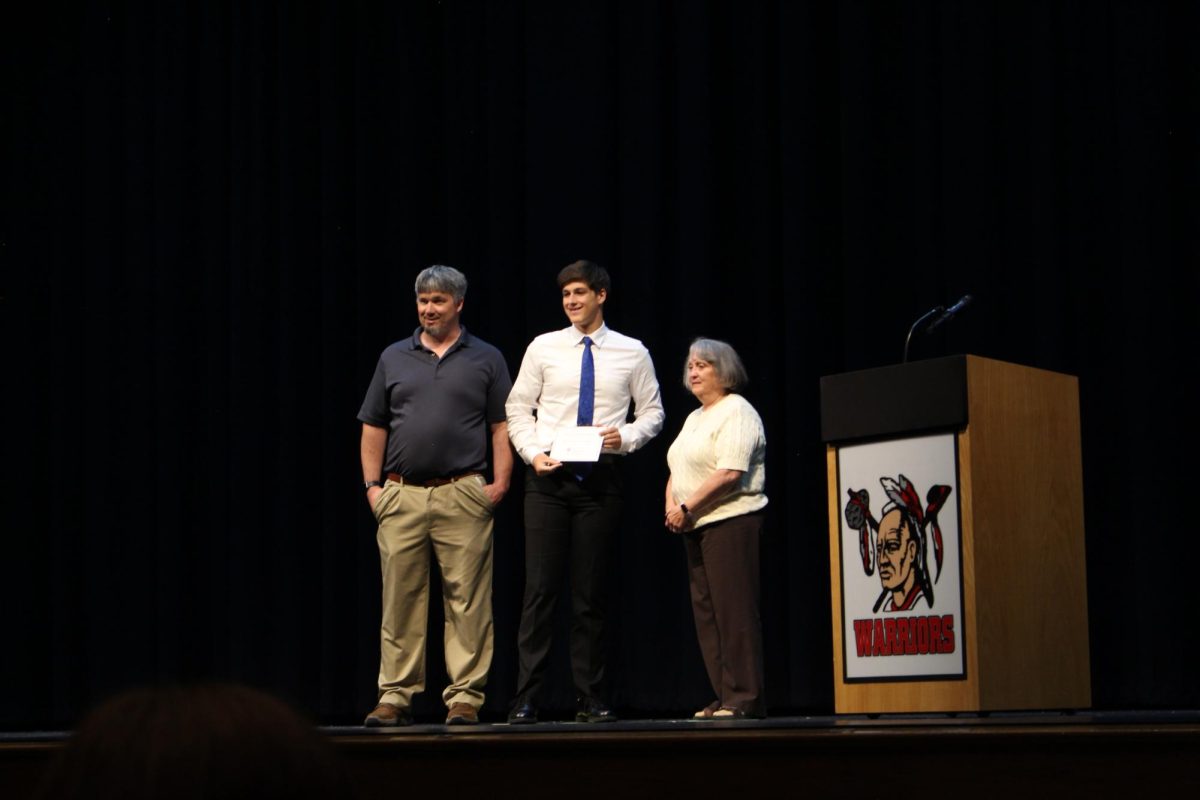Susquehannock’s technology department, which connects hundreds of computers, laptops, countless iPods and smartphones with internet protected the content filter of Smoothwall, has received complaints for blocked sites.
However, the situation would be a lot worse without daily monitoring by our technology department.

Screenshot by: Eli Holloway
As of March 14, sites such as USA Today, BBC News and Yahoo! were blocked for reasons varying from web search to streaming. These sites, while seemingly harmless, were deemed wrong for students to access. Kellin McCullough, teacher of Entrepreneurship and Sports Marketing, explained some reasons for blocking news sites.
“They block sites like USA Today because they are streaming audio and music,” said McCullough. “The tech department wants to make sure the internet is running right for everyone else.”
Streaming is an issue because the school only has a certain capacity for data, and streaming uses much of it.
Problems arise when teachers need to use the internet for the real reason it is in the school: education. When Civil War sites are blocked because of “Person Weapons,” things can get tricky.
McCullough knows one of the reasons for why seemingly educational sites are blocked.
“They are looking for keywords in the website’s text,” McCullough said. “Once when my class tried to access the Army’s website, it was blocked because they’re talking about guns and violence.”
McCullough did note that when she called the problem in to the tech department, it was resolved. However, it reveals a flaw in the system. Sometimes, classes learn about things that would not be acceptable to actually participate in during school.
For example, social media is blocked, and for good reason. But if a class was trying to study the effects of social media advertising, they are just as blocked as the girl trying to tweet in history.
Sophomore Patrick Scharff remembers a time when his class was hurt by blocked sites.
“In Spanish class our teacher is always trying to show us Youtube videos,” Scharff said. “It prevents the teachers from using technology to aid learning.”
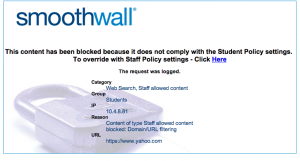
Screenshot by: Eli Holloway
Sophomore Ryan Denis also had a problem with blocked sites in class.
“In AP Programming, we were trying to look up how to do a specific program,” Denis said. “It was blocked because it was a forum, so we couldn’t get to it.”
These frustrated students are not aware of the difficulties of operating a school internet system. Bruce Wayne, head of the tech department, explained how in 2000, Congress passed the Children’s Internet Protection Act, which set guidelines for what was appropriate in schools and libraries. Over the years, new encryptions have been developed to evade the walls of the content filter. For example, using “https:” instead of “http:” used to allow students to pass the blocking walls.
However, companies have developed ways of reading through these encryptions and finding the key words. Sometimes, the Smoothwall’s blanket blocks harmless sites, such as the United States Army’s site. In this case, teachers can request the site to be unblocked by the tech department.
This request is received by a member of the crew, who then approves it or disapproves it. If the site is approved, it is sent to Bruce Mickey, who makes the final call, then hopefully unblocks it.

Photo by: Eli Holloway
There are many things that can get a site blocked, but most fall into the categories of objectionable content or internet streaming. Sites like Pandora are automatically blocked for everyone but music teachers, which keeps the internet running smoothly.
While students may have complaints about blocked sites, the tech department is constantly hard at work trying to fix problems. If a site really should be unblocked, ask a teacher to make the request, which should be granted or denied within two days.




